12 Homophobes We Defeated in the Midterms
11/30/18
trudestress
By continuing to use our site, you agree to our Privacy Policy and Terms of Use.
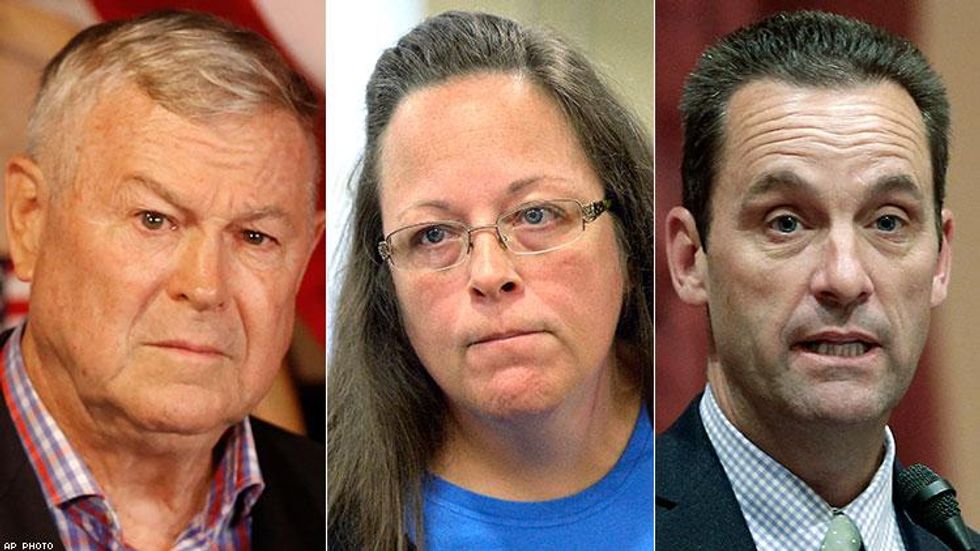
The midterm election's blue and rainbow waves washed away a lot of homophobic incumbents. The list of defeated phobes could go on and on, but we've whittled it down to a dirty dozen of the worst public officials we bid farewell to. Oh, and in case you had any doubt, they're all Republicans. Click through to see them and feel free to gloat a little.
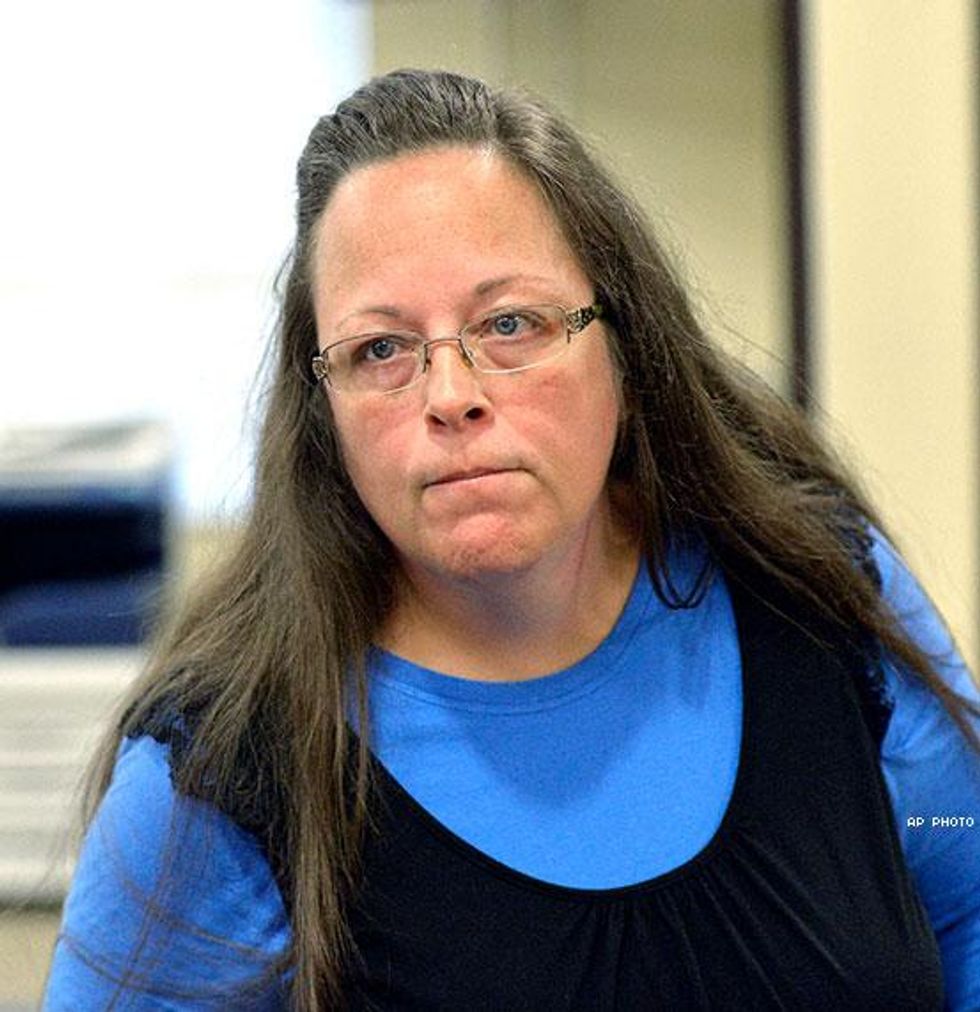
Sure, the clerkship of Rowan County, Ky., is a local office in a sparsely populated area, but it brought Kim Davis national fame when she shut down all marriage license operations in 2015 rather than serve same-sex couples after the Supreme Court's marriage equality ruling. Davis famously went to jail for defying a judge's order to issue licenses without discrimination, becoming a heroine to the religious right and anathema to the more fair-minded. Having changed her party affiliation from Democratic to Republican, she stood for reelection this year and lost to Democrat Elwood Caudill Jr., who bested her by about 700 votes. During the campaign, Caudill faced accusations that he too was homophobic; the charges appeared unfounded, and he did receive the endorsement of Kentucky's statewide LGBTQ rights group. Davis has kept a pretty low profile since the election. Liberty Counsel's Mat Staver, who represented her in her legal battles, has predicted she'll go into some form of Christian ministry. We won't line up to attend her services.
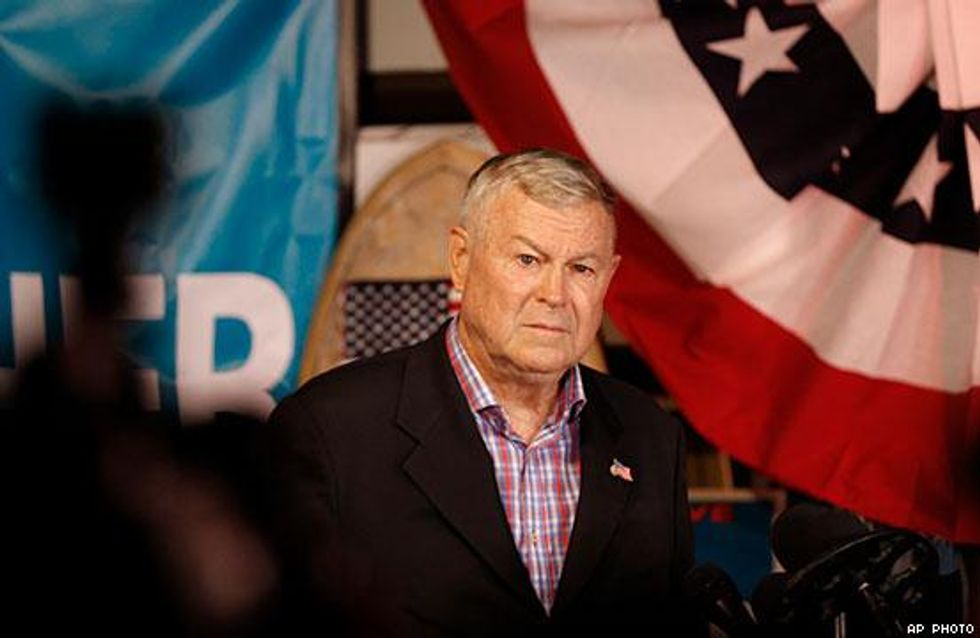
Booting Dana Rohrabacher from the U.S. House of Representatives was a big achievement. He'd represented a district in California's once-conservative Orange County for 30 years. But the O.C., like much of the nation, has become less tolerant of homophobes like Rohrabacher, a Republican who had a record of abysmal numbers on the Human Rights Campaign's Congressional Scorecard, which measures support for LGBTQ rights. This year he lost the endorsement of a real estate group because he supported housing discrimination against LGBTQ people, something his Democratic challenger, Harley Rouda, emphasized in campaign ads. It turned out to be a winning strategy for Rouda, who'll be the district's new congressman.
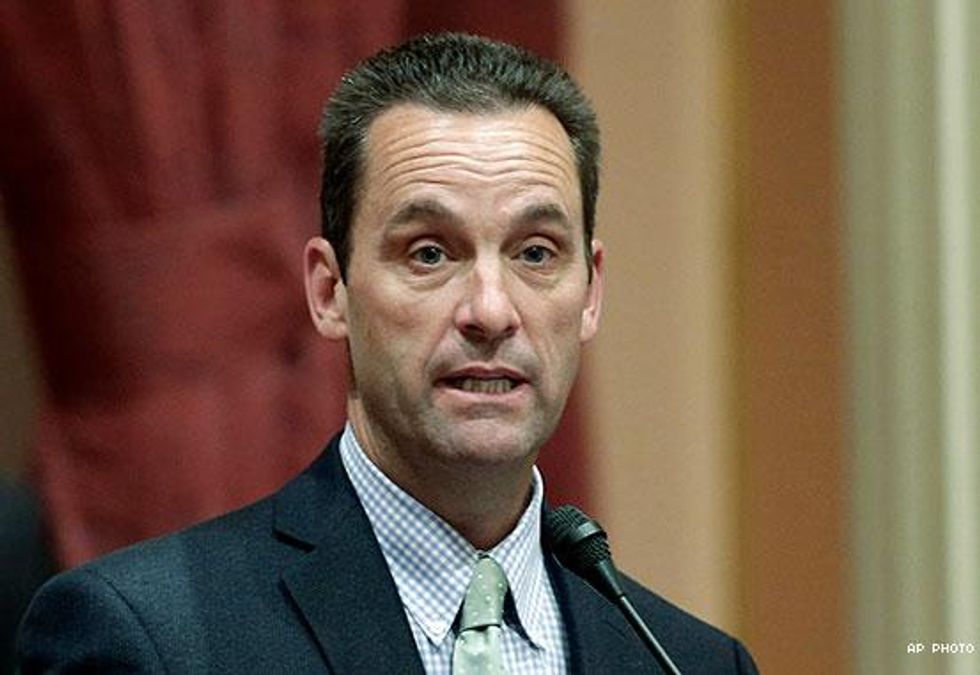
Going into the midterms, Steve Knight of California's 25th Congressional District was the lone Republican to represent a Los Angeles County district in the U.S. House. But thanks to energetic and progressive Democratic challenger Katie Hill, an out bisexual woman, L.A. County's delegation will be entirely blue when the new Congress convenes. Knight had an ultraconservative record that included staunch opposition to equal rights for LGBTQ people. Oh, and he once called Social Security a "bad idea." Voters in northern L.A. County decided reelecting Knight was the bad idea.

Oklahoma Congressman Steve Russell earned a place in the homophobia hall of fame in 2016 as author of the Russell Amendment, which would have gutted President Obama's executive order prohibiting anti-LGBTQ discrimination by companies that hold contracts with the federal government. It proposed allowing "religious corporations" an exemption from the order, without defining what that means, so courts could have construed it to apply to almost any company. The amendment was attached to a defense spending bill that was passed in the House, but luckily it was stripped from the final legislation and did not become law. This year voters decided to strip Russell of his congressional seat, giving Democrat Kendra Horn a narrow victory.
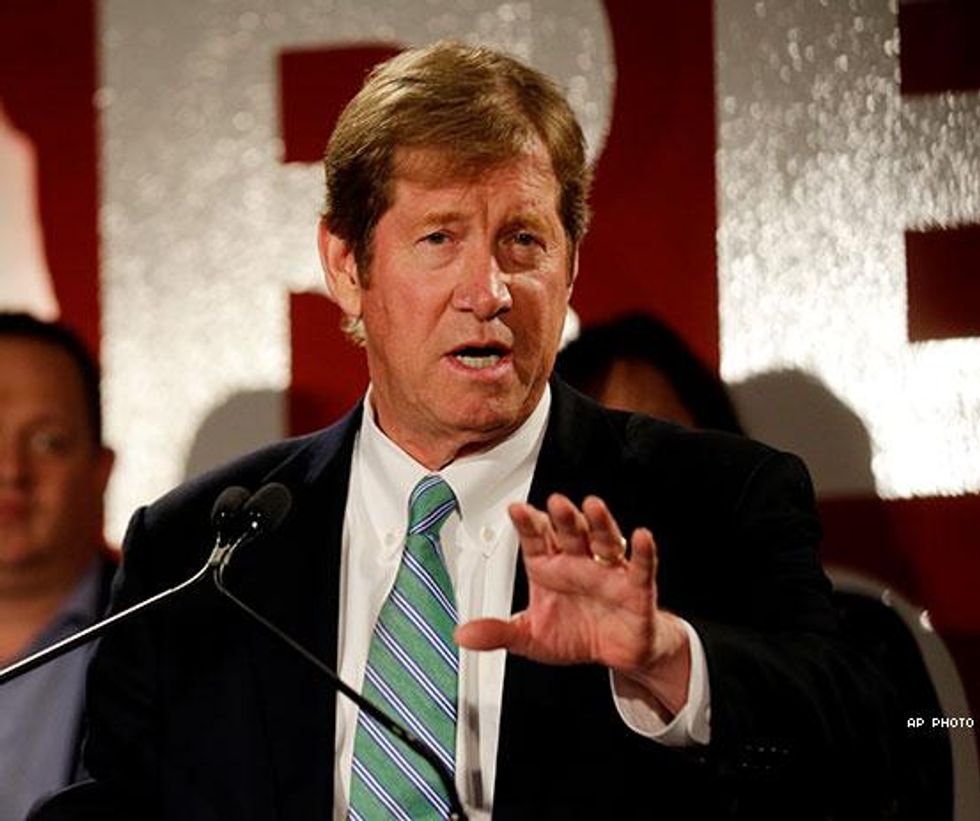
Congressman Jason Lewis of Minnesota is quite the piece of work. He once likened laws against same-sex marriage to laws prosecuting rapists -- yeah, our heads are still spinning. He said gay parents are harmful to children and that LGBTQ activists were "shredding the Constitution." What's more, this former radio shock jock has been known to call women sluts. His rhetoric brought back memories of another U.S. representative from Minnesota, Michele Bachmann, who's now left office. And Lewis will soon leave too, having lost his reelection bid to Democrat Angie Craig, a health care executive who happens to be a lesbian. Craig lost to Lewis in 2016 but got to savor a victory this year, and she'll be Minnesota's first out Congress member and the first lesbian mother in the body. Her win restores our belief in the concept of "Minnesota nice."
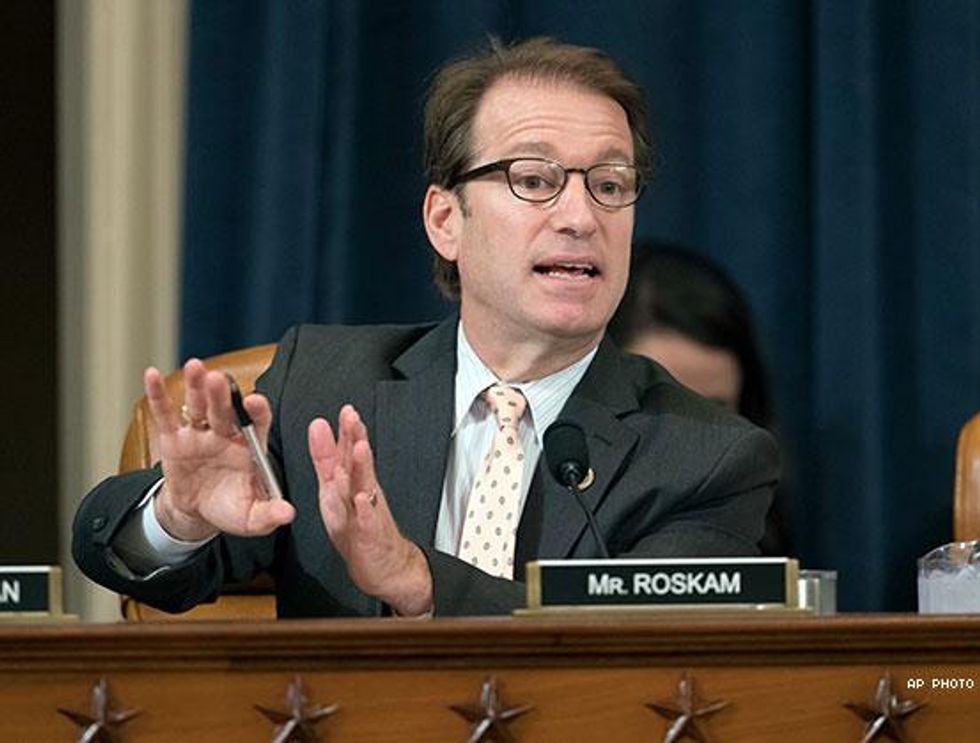
Peter Roskam has represented an Illinois congressional district centered on Chicago's traditionally conservative western suburbs for several terms, but voters there, like in many suburban areas, decided this year they'd had enough of his homophobic and generally right-wing ways. Roskam had racked up a string of zeroes on HRC's Congressional Scorecard since his first election in 2006; among other things, he voted against the Employment Non-Discrimination Act and LGBTQ-inclusive hate-crimes legislation. His Democratic opponent this year, political newcomer Sean Casten, made LGBTQ rights a signature issue of his campaign, which included a promise to support the Equality Act, the more far-reaching successor to ENDA. Casten's progressive, inclusive message gave him a win on Election Day.
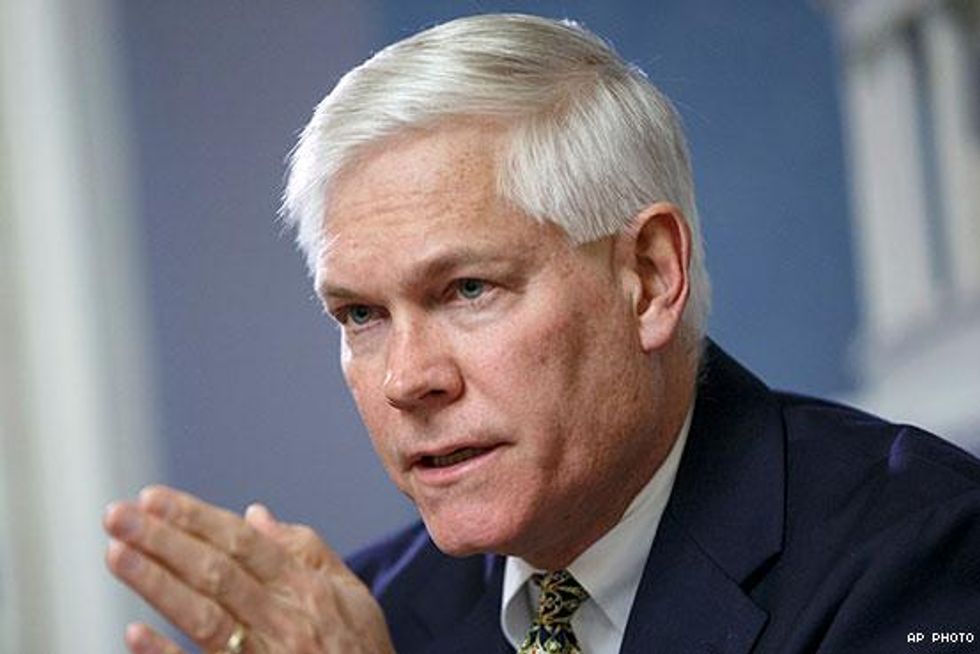
Veteran Texas Congressman Pete Sessions is no relation to Jeff Sessions, the now-ousted attorney general, but they're ideological soul mates. Like Jeff, who was once a U.S. senator, Pete earned a series of zeroes on HRC's Congressional Scorecard. Among other anti-LGBTQ stances, he has objected to same-sex marriage and the repeal of "don't ask, don't tell." Still, that didn't keep the Log Cabin Republicans from giving him its Barry Goldwater Award in 2010. (Hey, even the conservative icon Goldwater famously said you don't have to be straight to serve in the military; you just have to shoot straight.) More recently, in 2016, Sessions said that Orlando's Pulse nightclub, site of the worst mass shooting in U.S. history up to that time, wasn't a gay club. A Sessions staffer later said the congressman was confused because their were straight people at the club. This year, voters in the north Texas district opted for a candidate with a better understanding of inclusiveness, former pro football player and Obama administraton official Colin Allred. Allred supports the Equality Act, the right of transgender people to serve in the military, banning conversion therapy, and standing up for equality worldwide.

What's the matter with Kansas? A little less, now that anti-LGBTQ Congressman Kevin Yoder has been voted out of office. Even better, his successor is Sharice Davids, the first Native American lesbian to win election to Congress. Yoder racked up several zeroes on HRC's Congressional Scorecard and once said he opposes discrimination but worried that antidiscrimination laws would create a bonanza for trial lawyers. He did voice opposition to Donald Trump's plan to boot transgender people out of the military, but he said the military shouldn't pay for transition-related medical procedures -- even though that would represent a minuscule amount of the defense budget.
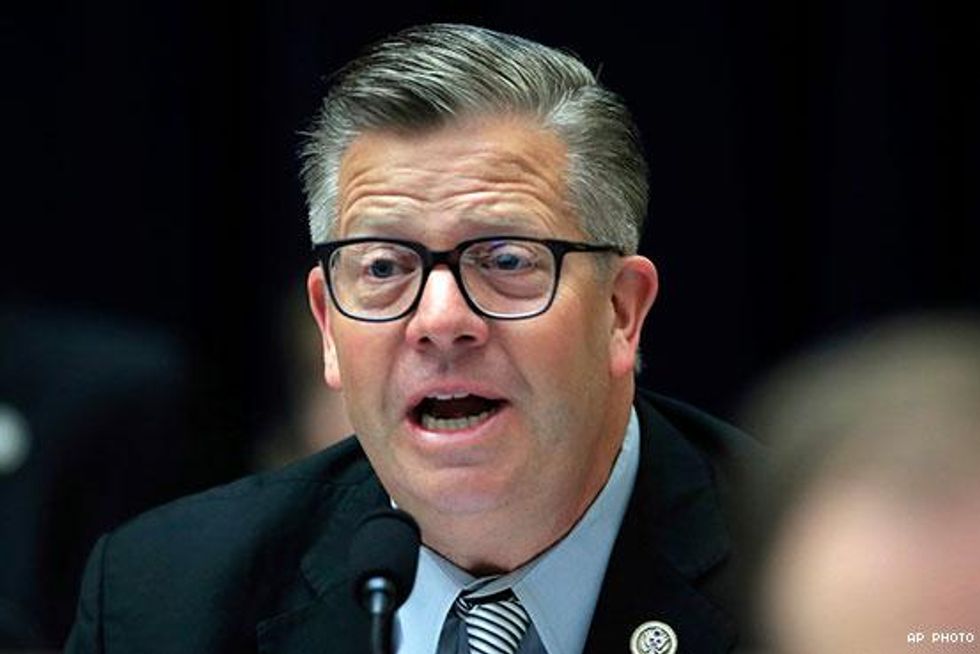
Longtime Illinois Congressman Randy Hultgren, from a district in Chicago's northern suburbs, has held to anti-LGBTQ views as his district discarded them. He received several zeroes on HRC's Congressional Scorecard and expressed disappointment in the Supreme Court's 2015 marriage equality ruling -- and worried that it would endranger "fundamental religious freedoms." On Election Day, voters rejected his message and chose a progressive young African-American woman, Lauren Underwood, to replace him in Congress. Underwood had the endorsement of HRC, Planned Parenthood, and numerous other organizations, as well as that of marquee Democratic names, led by no less than Barack Obama.
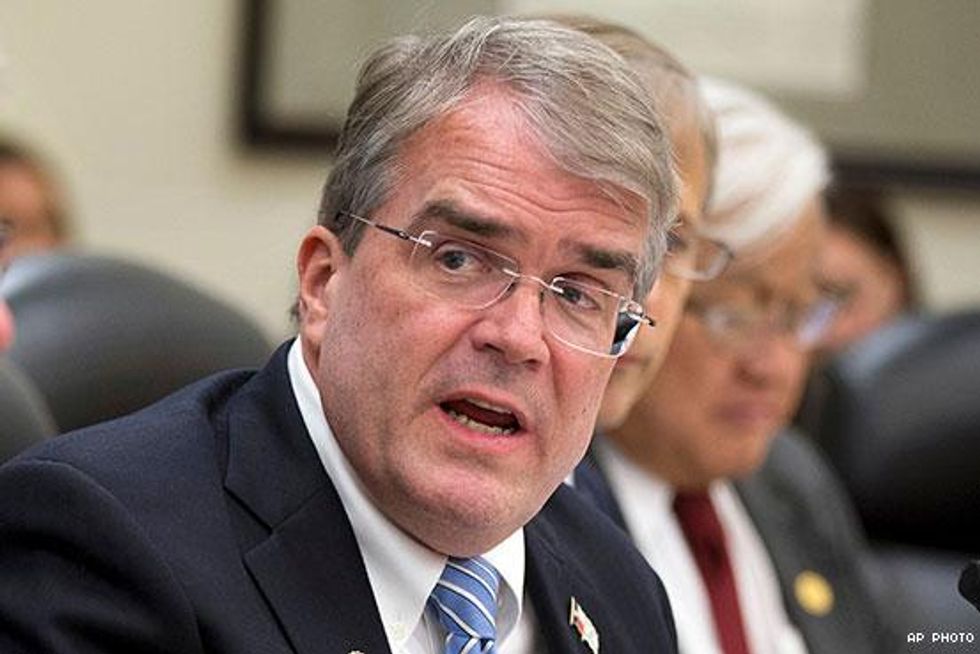
Back in 2009, Congressman John Culberson of Texas argued against marriage equality by saying, "You're not gonna have a fruitful, growing, productive civilization unless marriage is between a man and a woman ... history will show you that." No, Rep. Culberson, marriage equality won't turn everyone gay -- it's your side that wants to change people's orientation. Plus, LGBTQ people can and do procreate. Culberson was first elected to represent the Houston-area Seventh Congressional District in 2000 (the seat was once held by George H.W. Bush, who seems pretty moderate these days), but his run ended this year with a victory by Democrat Lizzie Fletcher, who had the endorsement of HRC, the Houston GLBT Political Caucus, and many other progressive groups.
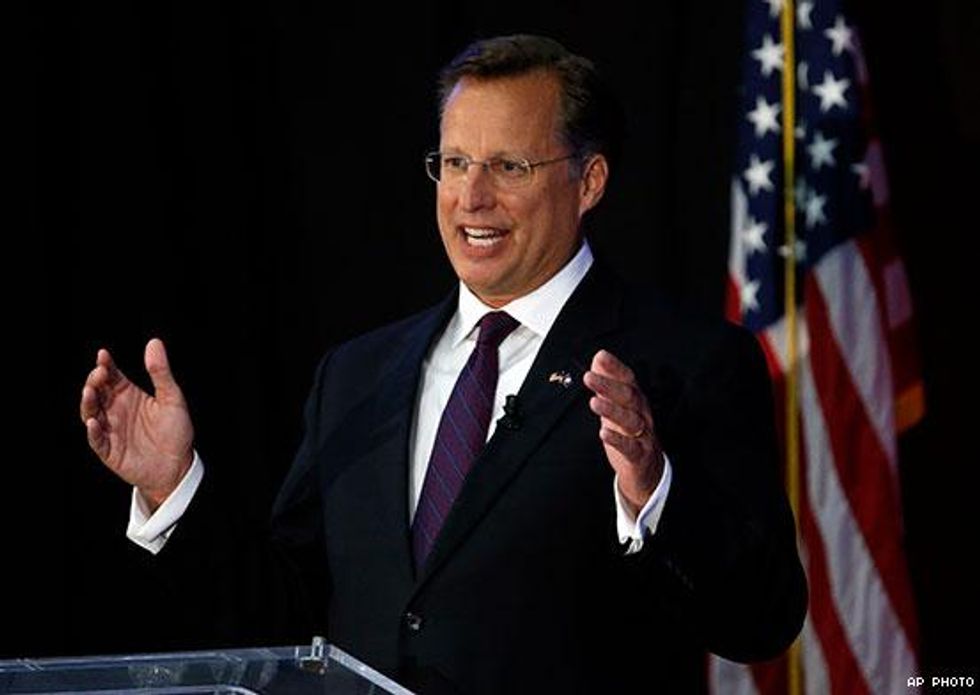
Dave Brat, an economics professor, rose to national prominence in 2014 by defeating Eric Cantor, then U.S. House majority leader, in the Republican primary in their Virginia congressional district. Brat, touting his belief in the "sanctity of marriage," won the general election that year and was reelected in 2016. He compiled an anti-LGBTQ record that included signing a letter urging Donald Trump "to support a series of federal laws and executive orders which would allow organizations to deny services to LGBTQ people if doing so went against their 'reasonable religious beliefs,'" as Gay RVA reported last year. Happily, voters this year chose the far more reasonable Abigail Spanberger, a Democrat who champions equality for all regardless of "gender, race, creed, national origin, disability, whom they love, or anything else that defines them," her campaign website notes.

Wisconsin Gov. Scott Walker, a hardline conservative on economic issues (he's an enemy of unions, particularly those representing public employees), has sometimes tried to present himself as a moderate on LGBTQ rights, but his record belies that. He supported the state constitution's ban on same-sex marriage and denounced the U.S. Supreme Court ruling that struck down all remaining bans. As Milwaukee County executive, a position he held before becoming govenor, he proposed ending HIV prevention programs, claiming that tackling the disease should not be "a core function of the county" and vetoed a bill that would have given workers domestic-partner benefits. In 2015, as he sought the Republican presidential nomination, he took some heat from the far right because his wife had attended a cousin's same-sex wedding, but he made clear he didn't go. This year Wisconsin voters decided they'd had enough of Walker and elected Democrat Tony Evers to be the next governor. Evers is a strong supporter of LGBTQ rights and other progressive causes, in keeping with the state's generally liberal traditions (it's the home of Tammy Baldwin, remember).